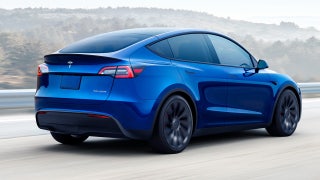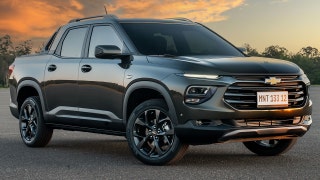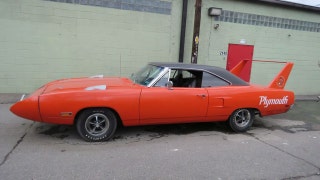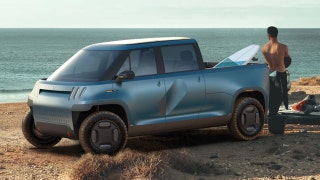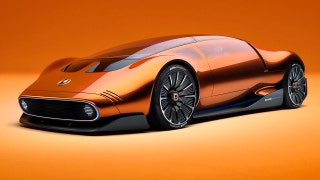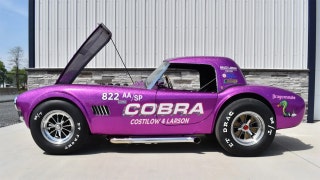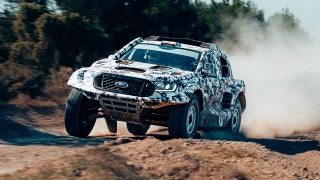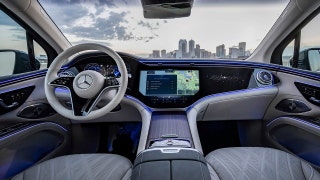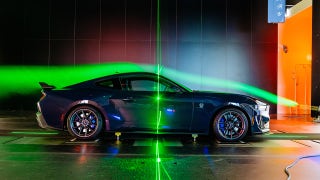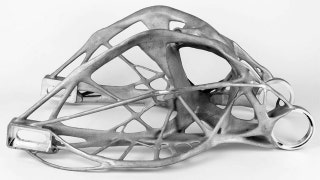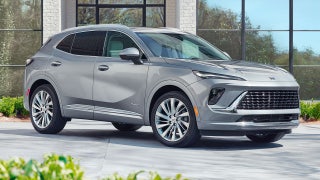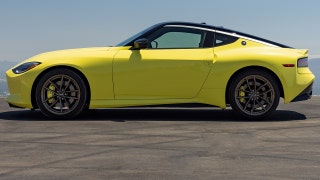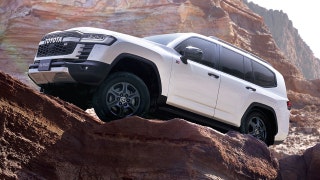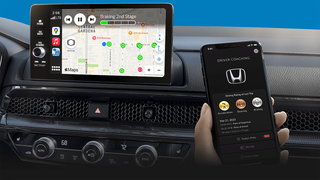Mercedes-Benz parent company Daimler is sending a convoy of three autonomous big rigs from its headquarters in Stuttgart, Germany, to Rotterdam, Holland, as part of the European Union-sponsored European Truck Platooning Challenge of 2016.
Based on the series-produced Actros model, the three trucks are equipped with Mercedes' Highway Pilot Connect software, which relies on vehicle-to-vehicle (V2V) technology to let the rigs travel in what Daimler calls a platoon. Data about the road ahead gathered by the lead truck is constantly transferred to the two other trucks via a Wi-Fi connection, so each vehicle knows precisely when to accelerate, when to brake, and when to turn without requiring any human input. However, the driver must remain alert and focused on the road ahead.
The trucks in the platoon follow each other in 50-foot intervals, which boosts gas mileage by up to ten percent by reducing drag. CO2 emissions are also slashed by ten percent. More efficient trucks are good for the environment, and they're beneficial for companies that make a living by transporting goods.
The three-truck platoon takes up markedly less space on the road than a trio of trucks driving independently. Mercedes explains that platooning makes roads safer, too, because the lead vehicle sends data to the trucks following it in as little as 0.1 seconds. In comparison, the average human driver takes 1.4 seconds to react to an emergency situation. A loaded truck needs a lot more space to come to a full stop than does the average passenger car, so Highway Pilot Connect has the potential to dramatically reduce the number of rear-end collisions that occur when a truck driver unexpectedly comes up on a traffic jam.
Related: Renault-Nissan promises to bring autonomous vehicles to the masses by 2020
If everything goes according to plan, Mercedes' autonomous convoy will arrive in Rotterdam on April 6. A timeframe for when the first fully autonomous commercial big rig will go on sale hasn't been provided yet, but Mercedes firmly believes the self-driving truck will play a sizable role in the future of the transportation industry.
Also watch: 2017 Audi R8 V10 Plus First Drive
new DTVideos.Jwplayer('dt-video-container-3582661225', {playlist: "http://content.jwplatform.com/feeds/2aG8PaCt.rss", primary: 'html5', controls: true, autostart: false, mute: false, repeat: false, image: 'http://content.jwplatform.com/thumbs/2aG8PaCt.jpg', width: '100%', aspectratio: '16:9', advertising: {client: "googima", tag: "http://pubads.g.doubleclick.net/gampad/ads?sz=970x556&iu=/5611/dtmn.video/dt_ros&ciu_szs&impl=s&gdfp_req=1&env=vp&output=xml_vast3&unviewed_position_start=1&url=__page-url__&description_url=http%3A%2F%2Fwww.digitaltrends.com&correlator=__random-number__&cmsid=2860&vid=__item-mediaid__&cust_params=supports%3Dbt%252Cmp%252Cskin", schedule: null, admessage: null, companiondiv: [], skipoffset: null}}, {content_id: '2aG8PaCt', discovery: true, attachment_id: '799113'});
Please enable Javascript to watch this video
